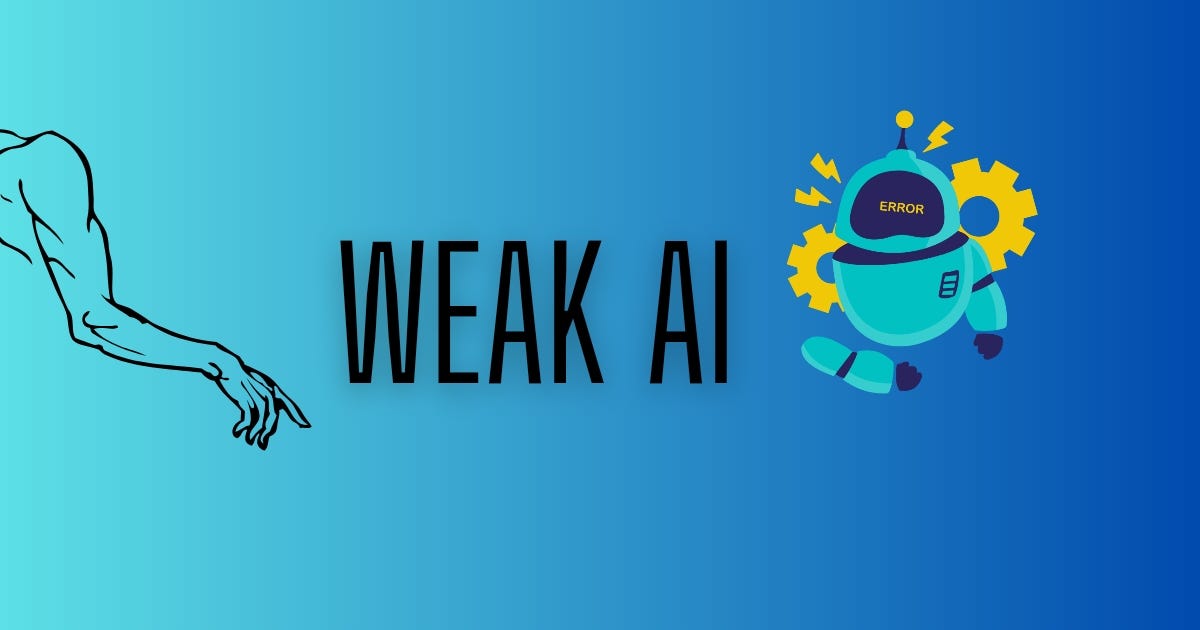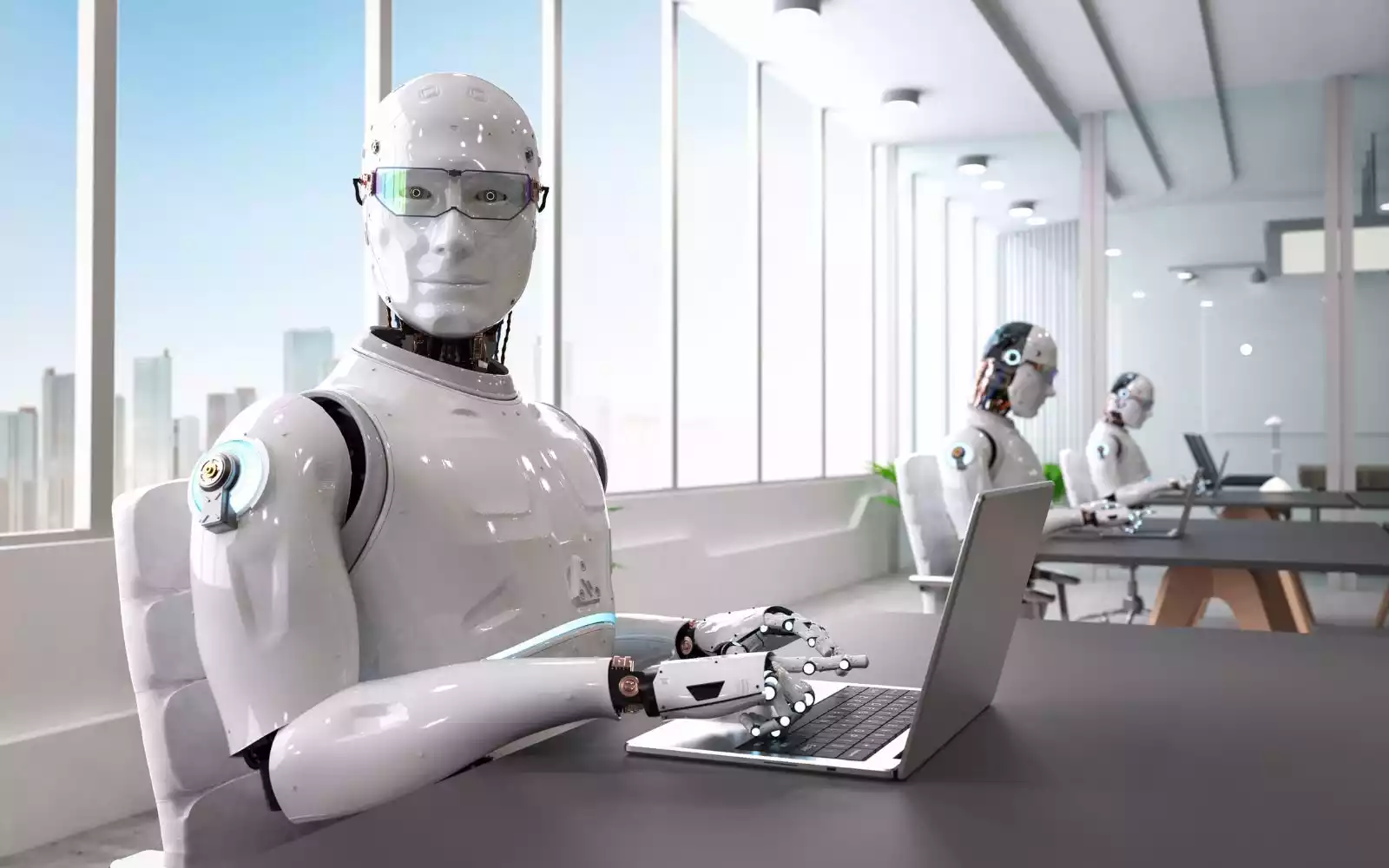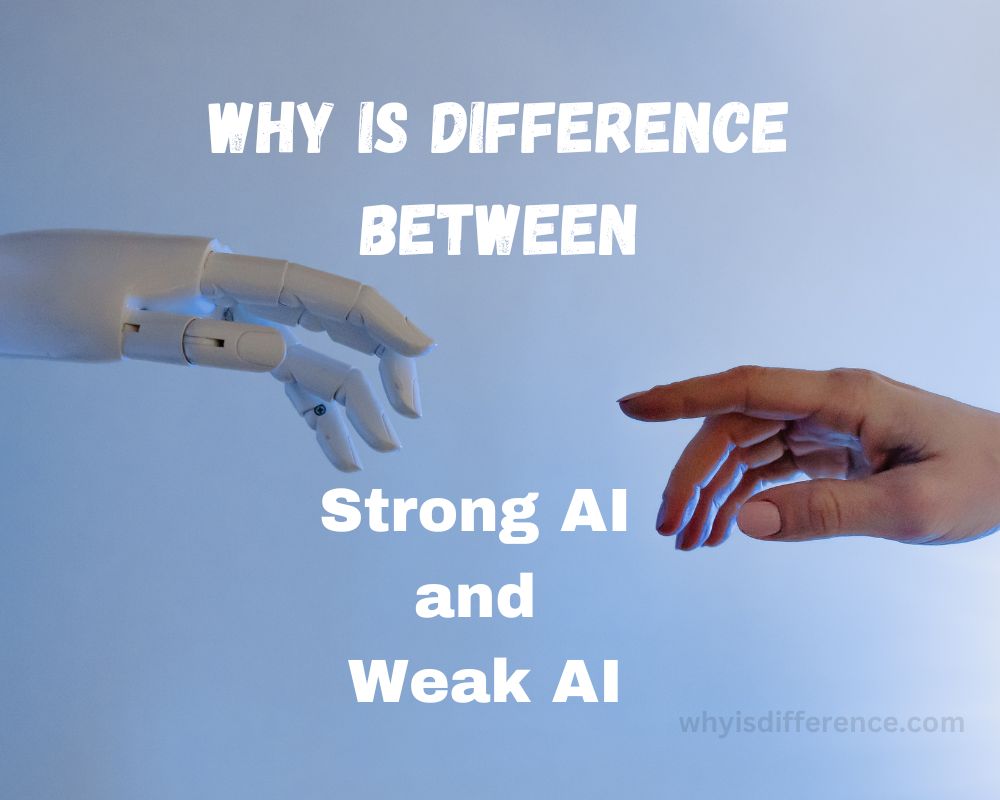Strong AI and Weak AI: Artificial Intelligence is an area of computer sciences dedicated to the creation of machines with intelligent behavior that mimics and performs tasks just like humans do. AI researchers strive to find alternatives for human brains. Researchers have made great strides toward their goal by harnessing computers that mimic human behavior, using speech recognition software and robots that play chess, tennis, and music as applications of their dream. According to AI philosophy, AI can be broken into two major types, Weak AI and Strong AI. The former refers to technology that performs preplanned movements based on rules; strong AI on the other hand involves developing technologies capable of thinking and functioning like humans.
History Of Artificial Intelligence?
- AI dates back to ancient Greece when stories and myths referred to intelligent robots. Modern development began during the mid-20th Century with digital computers coming into use and computer scientists and mathematicians beginning work on machines that mimicked human intelligence. Here’s a short history of AI.
- Researchers began building machines to decode encrypted communications during World War II. Walter Pitts and Warren McCulloch introduced artificial neural networks, or computer systems that mimic human neural structures, in 1943. Alan Turing then released his paper proposing a test to see whether or not machines exhibit intelligence comparable to human behavior.
- Dartmouth College researchers in New Hampshire, USA hosted a conference that marked the introduction of artificial intelligence as a field of study in 1956. At this conference, pioneering figures like John McCarthy, Marvin Minsky, and Claude Shannon proposed that AI should rely on symbol manipulation or symbol reasoning in order to solve problems.
- AI Winter (60s-1970s)- Artificial intelligence research experienced major setbacks during the 1960s and 70s due to unrealistic public expectations and slow progress; this period is known as “AI winter.”
- Expert Systems and Machine Learning in the 1980s-90s)- AI research during this era focused heavily on expert systems – computer programs that simulate human decision-making abilities – but by the 1990s machine learning had also emerged as a subfield within AI; specifically algorithms that learn from data.
- Modern AI (2000s-Present)- Since 2000, AI has witnessed immense advances in terms of deep learning, reinforcement learning, and neural networks – breakthroughs that led to its use across many sectors such as medicine, finance transportation, and entertainment.
- AI research is an extensive, long-running endeavor that spans several decades. AI has experienced many obstacles and setbacks along its journey; nonetheless, it continues to advance, poised to revolutionize many aspects of our lives.
What is Weak AI?

The core principle behind Weak AI is the notion that machines can act intelligently. For example, when humans play chess against computers they might feel as though the computer makes impressive moves but this is simply due to humans feeding all its moves to it and this way the software guarantees to make correct moves at appropriate moments.
What is Strong AI?

Strong Artificial Intelligence (AI) works on the principle that machines can be programmed to simulate or represent human minds in the future, acting in much the same way as people do – with thinking, reasoning and performing functions just like humans can. Many believe AI won’t become reality or will take an extended period, however strong AI development remains promising due to recent nanotech advancements; we have designed nanobots which fight diseases while making us smarter; as well as looking forward towards creating artificial neural networks which mimic human intelligence and act like people do today.
Differences Between Strong AI and Weak AI
Differences Between Weak and Strong Artificial Intelligence Systems:
Meaning
Strong AI is an artificial intelligence theory which proposes that machines are capable of replicating human intelligence and consciousness in much the same way a conscious human would. A hypothetical machine equipped with human-like cognitive abilities constitutes strong AI. Weak or narrow AI use advanced algorithms for specific reasoning or problem-solving tasks.
Functionality
Weak artificial intelligence has fewer functions than its strong counterpart, lacking self-awareness or human cognitive abilities such as facial recognition or emotions recognition. Instead, weak AI refers to systems designed with limited programming functions designed solely to solve certain types of problems within their specific range. Finally, strong artificial intelligence refers to machines possessing human-like intelligence. Ideally this goal would enable humans to interact with machines that possess intelligence, awareness and emotions similar to that found within humans themselves.
Goal
Goal Weak AI seeks to create technology which allows computers and machines to solve specific problems more quickly than humans while not necessarily taking into account any real-world knowledge about what’s being solved. Meanwhile, strong AI strives to bring artificial intelligence up to human levels of intellect; although as of yet this type of intelligence doesn’t yet exist in its full form.
| Strong AI | Weak AI |
| The machine can actually think and perform tasks on its own just like a human being. | The devices cannot follow these tasks on their own but are made to look intelligent. |
| Functionality | |
| An algorithm is stored by a computer program. | Tasks are entered manually to be performed. |
| Examples | |
| There are no proper examples of Strong AI. | An automatic car or remote control devices. |
| Progress | |
| Initial Stage | Advanced Stage |
Ethics and Societal Impact of AI
Ethics and Social Impact Artificial Intelligence can bring immense benefit to society. For example, AI could improve healthcare delivery, transportation systems and communication. But AI also raises a range of ethical and societal issues which must be taken seriously – here are some ethical and societal impacts of AI that we should keep an eye on.
- Artificial intelligence systems can perpetuate discrimination because their data reflects existing social biases. AI algorithms used for hiring can discriminate based on gender or race;
- AI systems may take over many fields of work, causing job displacement and economic disparity. Self-driving vehicles could potentially replace human drivers while automated customer service could replace human customer service representatives.
- Artificial intelligence can pose a grave threat to privacy and security by collecting and analysing vast quantities of data, often without people’s knowledge or consent. Facial recognition technology could even track their movements and activities without prior consent.
- AI systems have the capacity to make decisions with significant impacts on people’s lives, which may be hard to trace back to an individual or entity responsible. Therefore, it’s crucial that AI systems are transparent and accountable and subject to human oversight.
- Access and Inequality – Artificial intelligence systems could contribute to greater social and economic inequality by offering greater benefits to those with access to AI than those without. Therefore, it is vitally important that AI is available to everyone without perpetuating disparate outcomes.
AI technology can have significant ethical and social ramifications that must be carefully considered in order to make sure it benefits society as a whole. For the greatest effectiveness of this emerging field, we must create AI systems which are transparent and accountable, subject to human oversight, do not promote inequality or discrimination and do not perpetuate inequality or discrimination.
What is the Future of AI?
Artificial Intelligence (AI) will likely be defined in the future by advances across multiple disciplines such as deep learning and natural language processing, robotics, quantum computing and robotics are also expected to have a profound effect on AI development.
Here are some developments which could play a part in shaping its evolution:
- Deep learning is an area of AI involving the training of neural networks using large amounts of data, and is anticipated to play an increasingly significant role in its future evolution. Deep learning could enable more sophisticated AI systems capable of solving more challenging problems.
- Natural Language Processing (NLP) is an AI subfield focused on how computers interact with human language. As its field expands further in future years, its future potential should create AI systems that interact more naturally and effectively with humans.
- Robotic Automation Robots already play an integral part in industries like healthcare and manufacturing, but AI may see their use expand even further. Robotic advances could result in flexible robots capable of performing more tasks.
- Quantum Computing – Quantum computing utilizes quantum bits to perform calculations. Experts predict that quantum computing will make significant advancements in artificial intelligence systems that process data faster and more efficiently than current systems.
Ethics and Regulatory Frameworks As AI becomes more popular, its popularity will raise ethical and social considerations that must be addressed. Over time, AI may necessitate ethical and regulatory structures which regulate its usage for the greater good.
Conclusion
AI will become the future of humanity, so it is imperative that people learn how to make complex topics simpler for themselves. This article has focused on key points which can help anyone grasp this topic.

